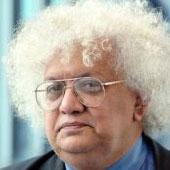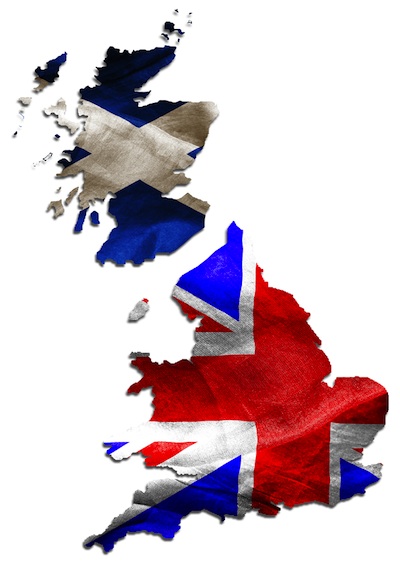10 Reasons To Oppose Scottish Independence
Scotland’s independence would hurt Europe.
September 17, 2014

The desire of smaller groupings of people, in democratically run and generally well-off states, to pin their futures on self-affirmation and self-government, appears to be growing. Some of the sought-after gains may be illusory. However, the potency of the hopes behind them is real.
At times in recent months, it has appeared as if the more lucid the arguments deployed against a Yes vote, the greater the Nationalists’ success in turning them to advantage by branding them as worthless or self-serving propaganda.
Nine months on, it is time to say that a Yes vote would have 10 major consequences for Europe and the world – nearly all of them negative.
1. A Yes would make Europe more divided and less able to play positive role on the world stage
It would probably increase the likelihood of the remaining UK leaving the EU in a future referendum decision and would heighten the importance of separatist politics elsewhere in Europe.
Most European leaders know the break-up of an important EU state would worsen Europe’s problems and diminish its importance, in the eyes of the world.
A Scottish shift would have global consequences, making it harder, for example, for the UK (and probably France too) – in contrast to India, Brazil, Germany and Japan – to justify a permanent place and veto on the UN Security Council.
2. A separated Scotland’s would be weak and palpitating
Monetary arrangements form any state’s heart. It is idle to believe that the Scots could carry on using the pound as though nothing had happened.
Centuries-long experience shows that a successful currency union requires political union, unless one region wishes to be permanently held in check by the more dominant player. It would be illogical for Scotland to vote for independence and then, in its fiscal and monetary relationship with England, take on the subservient part of a Liechtenstein in its link-up with Switzerland.
3. Brains, money and jobs would hemorrhage southwards
Scottish banks and financial service companies would not be the only ones to move bases, business and people to Manchester, London and Carlisle, to Leeds, Birmingham and Newcastle.
By voting Yes, the Scots might manufacture a similar reason for the kind of destabilizing population flows that unification between East and West Germany in 1990 sought to forestall.
‘If the D-mark doesn’t come to us, we’ll come to get it,’ was the East Germans’ slogan as they forced the West German authorities to bring in Europe’s quintessential hard currency and then to reunite the country in 1990 to choke off massive streams of westwards migration.
Sterling may not be the D-mark, but the British currency, in recent years (for a mix of reasons) harder than the euro, has its attractions.
The exodus this time could be across not Berlin’s Wall but Hadrian’s.
4. Independence would exacerbate, not alleviate, Scotland’s economic problems
Whether in pensions and social provision, research and development, commerce, trade and investment or their shopping bills, the Scots would probably soon find self-harm lurking behind self-determination.
This could be a bizarre re-run, in reverse, of the English-Scottish monetary union 307 years ago, after well-off Scots bankrupted the country and drove it into the arms of the English following a display of misplaced confidence in a capricious investment scheme to colonize the isthmus of Panama.
The ‘re-energization’ of Scotland promulgated by the Nationalists might one day happen, but, in view of the large number of anticipated initial problems, the Scots would probably have to wait a long while for the promised benefits.
5. The early political outcome of a Yes vote in the UK would be destabilizing
Nationalist leader Alex Salmond’s victory fruits would not last long.
Despite the charm, pugnacity and skill with which he has deployed his campaigning talents, Salmond could risk ending up, like many revolutionary leaders, a disappointed figure. A better result, for him and for Scotland, would be to lose the referendum but win compensatory powers from Westminster.
If the Yes side wins, David Cameron, brimming with blandness yet bereft of foresight, would go down in history as a latter-day Lord North, the 18th-century prime minster who lost Britain’s American colonies.
A difficult stretch of negotiations with Scotland about implementing the separation, and especially on dividing up the UK’s assets and liabilities on a basis that all sides find equitable, would be conducted in an atmosphere of bitterness and recrimination that could poison relations for many years.
Cameron’s Conservative party probably would tilt further to the right and further from the EU. Ed Miliband, the Labor leader, would hardly profit. His party would lose a northern foothold that was too small to turn the referendum tide yet could be sufficiently large to deprive the party of a majority in any future rump UK election.
6. A separate Scotland would not find immediate solace or support in Europe
The present UK’s successor state would have its seat in London, not Edinburgh. Other European governments are worried about secession in Catalonia, Flanders and elsewhere.
Salmond’s ruse to blackmail the English into accepting currency union, by otherwise refusing to accept Scots’ share of the UK national debt, is unlikely to succeed.
So Salmond would have two choices. He could fulfill his threat and renege on Scotland’s share of the hitherto all-UK national debt, which would negatively affect the division of all other assets and liabilities with the remaining parts of the UK. Or he could accept Scotland’s inherited and somewhat exacting debt burden, without fully adequate banking and currency arrangements.
Either path would reduce Scotland’s status and its negotiating leeway with the EU.
7. The issue of Scottish debt
The debt issue would overshadow not just the relationship with Brussels, Frankfurt, Berlin and Paris, but also the entire workings of a separated Scottish government.
The greater the questions over the new state’s willingness and ability to honor its debts, the higher the interest costs demanded by investors in the debt of a future independent Scotland. And the greater the difficulty, too, of maintaining Salmond’s welfare, pensions, educational promises – yet more black marks against a separated Scotland’s economic proficiency and political credibility.
8. The frequently over-stated riches of North Sea oil cannot represent Scotland’s salvation
A separate Scotland can negotiate revenue streams for new concessions. But – short of summary nationalization that has gone out of fashion even with African and South American revolutionaries – there will be no retroactive rewriting of valid legal agreements, no re-diversion of already-agreed revenues and no sudden windfall to swell Scots’ coffers.
Strong-arm methods against globally-operating energy companies at a time when the oil price is tending below $100 a barrel are not likely to achieve beneficial results for Scotland and its people.
9. A Yes vote would impair the defense arrangements of the UK and its allies
Europe and NATO would be less able to intervene in the world’s trouble-spots.
A separated Scotland would dismantle the Trident submarine base at Faslane on the Clyde, confronting the London government (and NATO) with a new dilemma over the future of the strategic nuclear deterrent.
The 15,000 Scots in the 100,000-strong UK army mainly live outside Scotland, reflecting UK policy of basing soldiers away from their homes. They have not been given a vote to express their loyalty to the state they help protect, despite efforts by leading military figures to persuade the UK government to give them one. This would be just one of the factors hampering the army’s cohesion after a Yes vote.
10. History is littered with cases where such uncontrolled processes have led to disaster
Whatever happens, the procedures for establishing the referendum and the terms under which it is being held run counter to best practice in mature democracies.
Many, now and in the future, may look with incredulity at Cameron’s decision to go ahead with the poll and make the result legally binding without any reference to the UK parliament and without the normal democratic prerequisites of constitutional change such as super-majorities and second-vote reconfirmations.
Not least for the UK’s European partners, the carousel-like development under which a residual UK shunned by Scotland might tilt further away from European integration should give rise to foreboding.
Thoughtlessness, expediency and a vein of unscrupulousness have coalesced to make possible a risky experiment of great destructive power. Onlookers with a stake in the outcome, but no direct role in Thursday’s referendum, can do little but hope that this will not be another one.
Editors Note: Sir Andrew Large, John Plender and Jack Wigglesworth also co-authored Official Monetary and Financial Institutions Forum.
Takeaways
The departure of Scotland from the UK would make EU politics and economics less predictable and less secure.
A Yes would make Europe more divided, more distracted and less able to play a positive role on the world stage.
A separate Scotland would not find immediate solace or support in Europe.
Authors

David Marsh
David Marsh is the managing director and co-founder of OMFIF.

Meghnad Desai
Meghnad Desai is a member of the British House of Lords and an emeritus professor of economics at the London School of Economics.

John Nugée
John Nugée is a senior advisor at the Official Monetary and Financial Institutions Forum (OMFIF).
